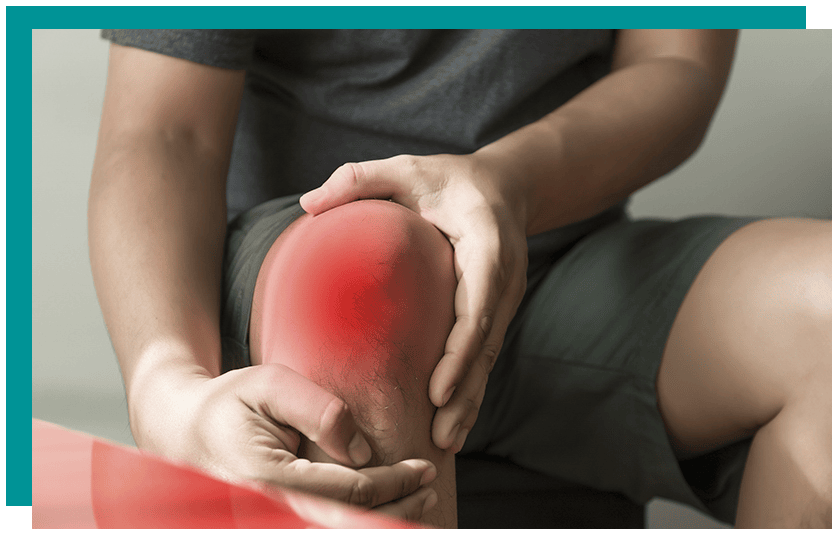Pain Control Clinic Discusses the Best Knee Pain Treatment in 2020
Chronic knee joint pain or is a common issue in the United States, and it can affect people from all walks of life. Symptoms of knee joint pain usually include knee stiffness, redness of knees, general weakness, crunching sounds, or an inability to straighten your knees.
Knee pain can occur for various reasons, including knee joint injury, bone and cartilage injury, knee arthritis, patellar tendinitis, knee bursitis, iliotibial band syndrome, and many others. When it comes to knee pain, it’s crucial to identify the root cause of knee joint pain and treat it accordingly.
In this article, our pain control clinic will discuss the best knee pain treatment in 2020. We will examine both conservative treatments and minimally invasive treatments for chronic pain.
However, before we do that, we must add a brief note on which knee pain treatments you should completely avoid. You should avoid surgical treatments for knee pain because they’re complicated, risky, and less effective than minimally-invasive alternatives. You should also avoid opioid-based treatments because they’re ineffective and lead to addiction.
Please continue reading to learn more about the best knee pain treatment in 2020.

Conservative Treatments for Knee Joint Pain
When you visit a pain management medical center or physical therapist about your knee joint pain, they will first recommend conservative treatments. The pain doctors will examine your knee pain symptoms using various physical, visual, and screening tests. Based on the diagnosis, they will offer the following conservative treatments for knee joint pain.
Please note that the following conservative treatments and home remedies are recommended to help restore knee joint mobility and reduce pain. But they don’t constitute a treatment in and of themselves — they must be accompanied by minimally-invasive medical treatments.
RICE
RICE — short for Rest, Ice, Compression, and Elevation — is the standard recommendation for people suffering from all types of pain. You have to first rest the injured body part, such as the knees. Following that, you must apply some ice packs to reduce inflammation, swelling, and pain. You’ll have to apply an ACE bandage for compression and elevate the knees to facilitate blood circulation.
Physical Therapy
The knee pain doctor will also recommend a physical therapist who will guide you through a series of movements to rehabilitate your knee joint and restore mobility.
Non-Steroidal Anti-Inflammatory Drugs
The best pain management doctors only offer non-steroidal anti-inflammatory drugs in combination with other minimally invasive treatments. These anti-inflammatory drugs include medications like Ibuprofen, Naproxen, and Aspirin. NSAIDs reduce inflammation and reduce pain — but you shouldn’t use them too often as they can lead to other side effects.
Minimally Invasive Knee Pain Treatments
In addition to the aforementioned conservative home treatments, the best interventional pain specialists and knee pain doctors will also recommend some minimally invasive knee pain treatments. These methods seek to address the root cause of your knee joint pain — whether that’s knee arthritis, knee replacement surgery, knee joint injury, or any other.
Steroid Injections
Steroid Injections or Corticosteroids are the first line of treatments to reduce inflammation. During the procedure, a corticosteroid is drawn up into a syringe along with some local anesthetic and delivered into the affected tissues of your knee joint. This method reduces pain and inflammation, and it’s far more effective than traditional anti-inflammatory drugs like Aspirin.
Viscosupplementation
Viscosupplementation or Hyaluronic Acid Injection is a treatment in which hyaluronic acid is delivered into your knee joints to supplement the naturally-occurring joint fluid. Hyaluronic acid is an important component of the knee joint fluid because it allows the bone and cartilage to glide against each other smoothly to reduce friction. People suffering from knee arthritis often lack sufficient hyaluronic acid, leading to knee joint pain. During the Viscosupplementation procedure, the pain doctor injects hyaluronic acid into the knee joint to supplement the joint fluid and restore mobility.
Genicular Nerve Block
Genicular nerves are the sensory nerves that transmit pain signals to the brain. If the aforementioned treatments fail, the pain doctor will inject a local anesthetic solution into the genicular nerves under ultrasound guidance. The local anesthetic will numb the genicular nerve, thus reducing pain. This process may have to be repeated several times to numb several affected genicular nerves. It’s a diagnostic procedure because it helps the pain doctor determine which genicular nerves need to be treated.
Genicular Nerve Radiofrequency Ablation
The previous method will help the pain doctors determine which genicular nerves need to be treated. If the aforementioned treatment is successful, the pain doctor will proceed to the Genicular Nerve Radiofrequency Ablation treatment for long-term relief. During this procedure, the knee pain doctor will insert three needles into your knee joints and transmit heat energy to destroy the genicular nerves and prevent them from transmitting pain signals to your brain.
Platelet-Rich Plasma Injection
Platelet-Rich Plasma Injection is a method used to treat pain caused by knee arthritis or knee tendinitis. This procedure reduces inflammation and promotes cell regeneration. However, we don’t recommend this treatment because it’s still relatively new, the research is limited, it’s costly and not yet covered by medical insurance.
Schedule your Knee Pain Treatment Today
Pain Treatment Specialists has some of the country’s finest knee pain doctors and board-certified interventional pain specialists who examine the root cause of your knee pain and use the latest minimally invasive treatments to reduce pain. For more information, please schedule your knee pain treatment today.

